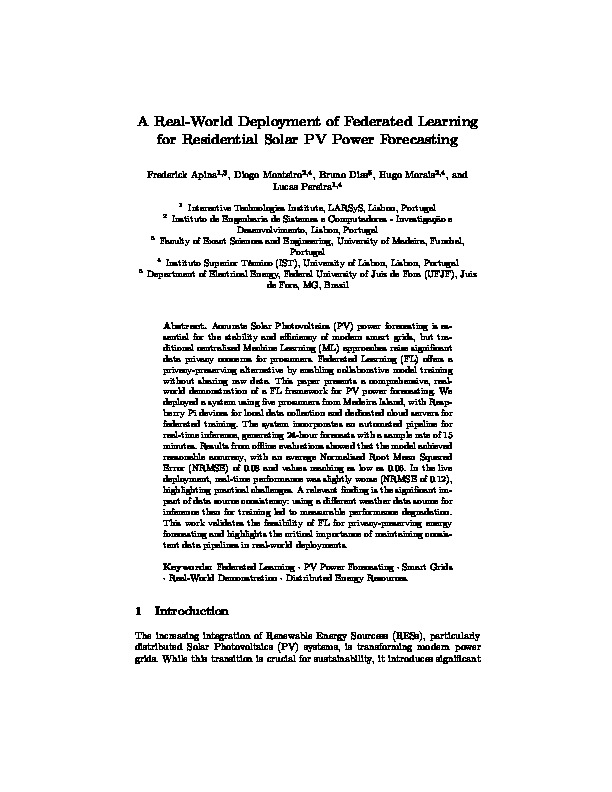A Real-World Deployment of Federated Learning for Residential Solar PV Power Forecasting
Abstract
Accurate Solar PV power forecasting is essential for the stability and efficiency of modern smart grids, but traditional centralized Machine-Learning approaches raise significant data privacy concerns for prosumers. Federated Learning (FL) offers a privacy-preserving alternative by enabling collaborative model training without sharing raw data. This paper presents a comprehensive, real-world demonstration of an FL framework for PV power forecasting. We deployed a system using five prosumers from Madeira Island, with Raspberry Pi devices for local data collection and dedicated cloud servers for federated training. The system incorporates an automated pipeline for real-time inference, generating 24-hour forecasts with a sample rate of 15 minutes. Results from offline evaluations showed that the model achieved reasonable accuracy, with an average NRMSE of 0.08 and values reaching as low as 0.06.
In the live deployment, real-time performance was slightly worse (NRMSE of 0.12), highlighting practical challenges. A relevant finding is the significant impact of data source consistency: using a different weather data source for inference than for training led to measurable performance degradation. This work validates the feasibility of FL for privacy-preserving energy forecasting and highlights the critical importance of maintaining consistent data pipelines in real-world deployments.

